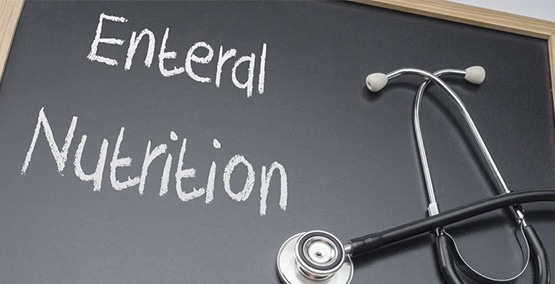
Enteral nutrition in Crohn's and colitis
Providing adequate nutrition has long been an important part of taking care of patients with Crohn's disease and ulcerative colitis. These are two of the most common Inflammatory Bowel Dieases (IBD).
Children with IBD often have decreased growth and a delay in puberty. The focus has always been to give them more and better nutrition. Providing more calories, higher protein levels along with supplements should improve growth and the child's general health.
Fiber
When patients have a flare up of their symptoms, we usually recommend a low fiber diet. Fiber can irritate inflammed intestines and cause more bleeding. We often instruct patients with Crohn's to avoid nuts and popcorn in quantity. These high fiber foods could get stuck and cause more inflammation.
A New Approach
Research and treatment are still focused on medication to reduce the overactive immune system and reduce injury to the intestine. But our new understanding of the intestinal flora, the bacteria and other microorganisms that make up the <<microbiome>> has made us focus on the importance of nutrition in IBD.
The Europeans, Canadians and Japanese have been using aggressive nutritional therapy to treat Crohn's disease when a patient is diagnosed. They calculate the child's or teen's nutritional needs and provide them as liquid nutrition for a number of weeks. This usually requires a tube that goes through the nose to deliver the formula into the stomach. Why? Because it is hard to drink the large amount of fluid required. It is called enteral therapy, which means tube-fed nutrition.
Enteral therapy seems traumatic to a child and the family who has just received the diagnosis of IBD. And so, many doctors and patients resist. But the amazing and important thing is that it works. In fact, it worked just as well as steroids in bringing patients with Crohn's disease into remission with none of the steroid side effects.

Why Does Enteral Nutrition Work?
- It might be because the child is getting extra nutrients and calories that they might not otherwise be able to eat when they're not feeling well
- It might be because all the nutrients are being absorbed high up in the intestine, with little going down further, giving the lower intestine time to heal
- It might be what's in the formulas. We now know nutrients can change the balance of the intestinal microbiome to a healthier flora, giving the immune system less to overreact to.
The Immediate Future
A number of preliminary trials of partial enteral nutrition along with eating some foods are underway. The goal is to see if partial enteral nutrition works as well as total enteral therapy.
But there's still a lot we don't know–yet:
- Are any specific elements of these diets more effective? If so, they might not have to be so restrictive.
- Are these diets effective long term or just in the beginning? So far, the only thing that's been shown is that they are only temporarily effective in children with newly diagnosed Crohn's disease.
- Can they be used for adults with long standing disease or in ulcerative colitis? Can they be used for any other conditions?
- Can they replace medication as the primary treatment?
- Can the diets be modified to make them easier to follow?
- Can we find out how the nutrition helps?
- Is there any <<specific diet>> that works best? <<Crohn's disease>>
- What cautions need to be exercised?
Bottom line
- As you can see, what we know doesn't compare to what we don't know. Children can lose weight initially getting used to the diets and may have trouble following them at school or away from home. Emotionally, the diets can seem worse than the disease for some children, especially if they feel pressured. And they may not work for everybody. So if you are going to try one of the diets, do so with help and supervision from your doctor and a registered dietitian.




